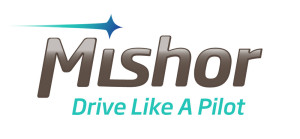With Apple CEO Tim Cook set to officiate at the company’s inauguration of its new Israeli office in Herzliya Pituach, it makes sense that the Silicon Valley giant should explore whether startups could significant value to the company’s current and future product lines.
Apple has been quietly sitting on a hoard of some $179 billion in cash. With that kind of buying power, it is logical that the company would go shopping in Startup Nation to add new technology to its portfolio.
 The recent revelation that Apple is working on its own electric car to compete with Tesla suggests raises the question of whether Mishor 3D could be a logical target company. Mishor 3D has developed a host of driver applications that could prove valuable to Apple’s creation of an electric vehicle. These include projecting navigation, fuel, and related information onto a driver’s windshield; lane departure and other safety hazard warnings; and the display of location=based services like gas stations, restaurants, and other points of interest. Ford recently licensed Mishor 3D technology for future generations of its vehicles.
The recent revelation that Apple is working on its own electric car to compete with Tesla suggests raises the question of whether Mishor 3D could be a logical target company. Mishor 3D has developed a host of driver applications that could prove valuable to Apple’s creation of an electric vehicle. These include projecting navigation, fuel, and related information onto a driver’s windshield; lane departure and other safety hazard warnings; and the display of location=based services like gas stations, restaurants, and other points of interest. Ford recently licensed Mishor 3D technology for future generations of its vehicles.
Apple already purchased 3D sensor company PrimeSense, Ltd. in 2013. The company was the innovator of the 3D technology used in Microsoft’s XBox 360 gaming devices. Apple reportedly paid a figure near $360 million for the firm. It would make sense that at least some of the acquired employees who came to Apple from PrimeSense would be working on 3D technology for Apple’s rumored vehicle. Adding Mishor 3D to the mix would be a sensible acquisition of talent and technology.
 Corephotonics, a dual compact camera lens company would be another logical acquisition for Apple. The startup has extensive expertise in computational photography to make images clearer and sharper using “algorithms, novel actuators and optical designs.”
Corephotonics, a dual compact camera lens company would be another logical acquisition for Apple. The startup has extensive expertise in computational photography to make images clearer and sharper using “algorithms, novel actuators and optical designs.”
If reports prove true, Apple’s rumored next generation iPhone 6s will incorporate dual-lens technology. Buying Tel Aviv-based Corephotonics would give Apple a huge advantage over Samsung, HTC, and other mobile competitors, and radically upgrade the iPhone and iPad product lines.
Finally, Jerusalem-based ZUtA Labs, maker of the robotic pocket printer that just won CES’s 2015 Best of Innovation award, seems like another smart choice for Apple.
The ZUtA mini-printer is the perfect accessory for mobile Macs. From the Macbook Air to iPhones and iPads, the pocket printer works with them all. An Apple acquisition would revive a product line that has been extinct since the company discontinued sales of its laserjet and inkjet printers in the late ’90s.